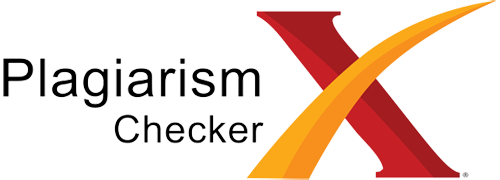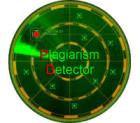ANALISIS KADAR HIDROKUINON PADA KRIM MALAM DI KLINIK KECANTIKAN KABUPATEN BREBESDENGAN SPEKRTOFOTOMETRI UV-VIS
Keywords:
Cosmetic, Cream, Hydroquinone, TLC, UV-Vis SpectrophotometryAbstract
Phenol derivatives that are often misused as active ingredients in making beauty creams that function to whiten facial skin areas, one of which is hydroquinone. This compound is often applied as an active ingredient in the manufacture of night creams. These effects can begin to appear after using A period of 6 months and possibly irreversible. Aims to determine the content, levels, and safety level of facial whitening nights provided by doctors in beauty clinics. Six samples of night cream given by doctors from several regions will go through color, pH, and TLC tests. After that, it will be analyzed quantitatively using the visible spectrophotometry method. The analysis showed that all the cream samples analyzed were proven to contain hydroquinone, with each sample content of less than 1%. All samples of these creams should not be used as cosmetics but must be converted into the category of therapeutic products (drugs) or in other ways remove Hydroquinone ingredients from the formula if they are still produced in the cosmetic category.
References
Carissa., 2015,Analisis Hidrokuinon Secara Spektrofotometri Sinar Tampak Dalam Sediaan Krim Malam NC-16 dan NC-74 dari Klinik Kecantikan LSC Surabaya, Jurnal Calyptra Ilmiah Mahasiswa Universitas Surabaya Vol.4 No.1, Surabaya.
Doreen A, Dr. Raymond V, Godfred E.S., 2014,Determination of Amount of Hydroquinone in some selected Skin-lightening Creams sold in the Ghanaian Market. International Journal of Scientific & Engineering Research, Volume 5, Issue 6, June, ISSN 2229-5518, Ghana.
Hadi.R, Sudirman.S, Wahyu T.M, Yosephine R.E., 2017, sidang terbuka untuk umum,Putusan Pengadilan Pajak Nomor: Put-87334/PP/M.VI.A/19/2017, Jakarta.
Lillian C. Becker,.2014,Amended Safety Assessment of Hydroquinone as Used in Cosmetics, Cosmetic Ingredient Review Expert Panel members,Washington.
Ni Nyoman dan Sri Widiayati., 2014, Identifikasi Hidrokuinon dalam Krim Pemutih dengan Metode Kromatografi Lapis Tipis ( KLT ), Jurnal Info Kesehatan, Vol. 13, Nomor 2,Kupang.
P. O. Odumosudan T. O. Ekwe., 2010,Identification and spectrophometric determination ofhydroquinone levels in some cosmetic creams. African Journal of Pharmacy and Pharmacology Vol. 4(5), pp. 231-234, ISSN 1996-0816, Plateau State, Nigeria.
Pudjiwati, Endang., 2015. Regulasi Kosmetika dan Kosmetika Obat, Kepala Balai Besar POM RI, Semarang.
Ribka dan Abdul., 2018, Optimasi Formula Sediaan Krim o/w Kombinasi Oksibenzon dan Titanium Dioksida Serta Uji Aktivitas Tabir Suryanya Secara In Vivo, Majalah Farmaseutik Vol. 14 No. 2 Hal. 63-78, ISSN-p : 1410-590x, ISSN-e : 2614-0063, Yogyakarta.
Roslinda R, Eva S, Rieke A., 2015, Pemeriksaan Kualitatif Hidrokuinon dan Merkuri dalam Krim Pemutih, jurnal Farmasi Higea, Vol. 7, No. 1, Padang.
Rubiyati, R., & Setiawan, A., 2018, Pengaruh Pemberian Hidrokuinon Terhadap Perkembangan Fetus Mencit (Mus musculus L.) Swiss Webster, Jurnal AkademikaBaiturrahim , Jambi.
Safrina, Ulya., 2016,Kenali Krim Pemutih Wajah yang Berbahaya,13, Tribun Jogja, Minggu Pon 3 April 2016.
Sarah, K.W., 2014,Analisis Hidrokuinon dalam Sediaan Krim Malam “CW1†dan “CW2†dari Klinik Kecantikan “N†dan “E†di Kabupaten Sidoarjo,Jurnal Calyptra Ilmiah Mahasiswa Universitas Surabaya Vol.3 No.2, Surabaya.
Sari, A. K., Saputera, M. M. A., Ayuchecaria, N., & Pratiwi, M. E., 2017,Analisis Kualitatif Merkuri Pada Lotion Pemutih Yang Dijual Di Online Shop Daerah Kota Banjarmasin. Jurnal Ilmiah Ibnu Sina (JIIS): Ilmu Farmasi Dan Kesehatan, 2(1), 13–19.
Susan N, Ginayanti H, Senadi B., 2015, Analisis Penetapan Kadar Hidrokuinon pada Kosmetik Krim Pemutih yang Beredar di Beberapa Tempat di Kota Bandung, Universitas Al-Ghifari, ISBN: 978-602-73060-1-1, Bandung.
U.E. Ekpunobi, E.O. Okonkwo, C.V. Udeh, A.S. Ogbuagu and C.B. Duru., 2014,Determination of hydroquinone and mercury concentrations in some skin lightening lotions and creams sold in Southeastern Nigeria, International Journal of Biotechnology Research Vol. 2(1), pp. 011-016, March, ISSN 2328-3505 ©2013 Academe Research Journals, Anambra State, Nigeria.Widya A.V dan Susi. N., 2014, Modul Praktikum Kimia Analisis Kualitatif dan Kuantitatif, Prodi Farmasi, FIKES, Universitas Muhammadiyah, Palangkaraya.
















